Circus games
Whatever it is that makes me love football, it’s not the commonly-cited feeling of community, because I’ve never really had that. When I was young I was pretty much the only gay (“Aberdeen fan”) in the village (“town of 20,000 people”) – the vast majority of people in central Scotland support the vile twin icons of bigotry Rangers or Celtic, or (if they have no interest in Irish history) to a much lesser extent Hearts and an even lesser extent Hibs.
I came to support Aberdeen in around 1975 simply because it was the home town of my best friend Neil Strachan, but just a couple of years later his family moved away from Bathgate to a distant suburb of Edinburgh, leaving me with no Dons-following pals. When I was in my early teens I wasn’t allowed to go to games on my own, and not to Ibrox or Parkhead at all, so I could only very occasionally get to watch them when they played nearby – usually in Edinburgh when I could go with Neil, or now and again with my dad, who doesn’t really care about football – so seeing my team in the flesh was a rare treat rather than a regular bonding experience.
The day I was irreversably hooked on live football was the 22nd of May 1982. The newly-resurgent Dons under Alex Ferguson (pre-Sir) made it to the Scottish Cup Final, something they typically managed once a decade, and after much pestering the 14-year-old me managed to persuade my dad – on the morning of the game – to take me to Hampden.
(Amazing as it seems now, in 1982 you could just turn up on cup final day and buy a ticket at the turnstiles. In the shot below you can see how many gaps there were on the Aberdeen terraces – although they’d won the league a couple of seasons earlier the fledgling Ferguson team was just starting their rise to real prominence, and pretty much everybody expected a comfortable Rangers win against a provincial side full of youngsters who’d never known the pressures of a big final, so only about 10,000 Rudolphs made the long trip from Aberdeen to Glasgow.)
Hampden was a decrepit place by then, and is situated in a poor area of Glasgow, but walking the mile or so from the street where we parked to the ground you could just feel the history of the place in the air. Immediately through the turnstiles of the East terracing, you were faced with a huge concrete staircase that seemed to climb right into the sky, and on reaching the top of it I felt a surge of electricity unlike anything I’d expected or ever experienced as a 14-year-old.
In glorious May sunshine, the crumbling old stadium was an unlikely feast for the senses. A riot of primary colours – the grass impossibly green under a bright blue sky with white fluffy clouds and everything in our immediate vicinity a deep Aberdeen red – combined with the unmistakeable noise of excitement and anticipation (and the smell of fried onions). We found a good spot, high up in the northeast corner in line with the goal-line, and drank in the atmosphere on the Colosseum-like bank of stepped terracing sweeping all the way round the end of the faded but evocative old ground.
The events of the match itself can be (just about) seen here:
(For orientation, the East end of Hampden is the one the first goal is scored into and that tatty old shed is the North Stand, long since demolished.) 26 years on, I still vividly remember the horrible sinking feeling in the pit of my stomach as I watched the ball nestling in the nearest corner of the distinctively deep Hampden nets from a John McDonald header after just 15 minutes. (Now that’s a PROPER goalnet, none of your rubbish modern trampoline affairs where if you blink you’ll miss the split second where the ball is actually inside the goal.)
At the time it seemed the beginning of something inevitable, something that fans of provincial teams were all too used to when meeting the Old Firm in finals. So as we strained our eyes to watch Alex McLeish’s perfect curling shot from the edge of the penalty area beat Jim Stewart in the postage-stamp corner 17 minutes later (as is the way at big grounds, sound rather than sight was the real indicator of what had happened), there was a dawning realisation that Ferguson’s young team wasn’t going to freeze and capitulate as the smaller teams usually did against Glasgow’s gruesome twosome, and as the first half finished on level terms there was a palpable frisson among the 10,000 or so Dons fans clustered at our end in the 62,000 crowd.
In the second half Aberdeen were all over Rangers like a rash, playing the thrilling attacking football that would become their trademark under Ferguson, but Rangers’ team of experienced old men somehow managed to fend off the onslaught for 45 minutes. But it felt like when an old boxer has used his last reserves of strength to mount a desperate last-ditch attack with three rounds still to go, and you know the up-and-coming young challenger is about to pulverise him. The Dons players jumped around, impatient for extra time to begin, while the men in blue sagged and tried to catch their breath.
I’ve never known joy inside a football ground like the next half-an-hour. Rangers were swept aside in a display of irresistible flair and verve, put to the sword in a crushing defeat (“Suddenly it’s become a rout”) that sent them tumbling into the worst period of their entire history for the rest of the 1980s (not to be rescued until Graeme Souness arrived with David Murray’s chequebook and changed football for the worse forever, ushering in the era of the money-driven game as we currently know it).
The freeze-frame moment just three minutes into the first period is burned in my memory, as the ball (from Mark McGhee’s unpromising-looking 12-yard header), the goalpost and Jim Stewart’s despairing, weary dive all converged in my line of sight in a split-second of uncertainty before the ball somehow squeezed past the keeper, glanced off the inside of the post and reappeared in view beyond him to ripple the back of the net. (Look at the shot above, and note that the international goalie is about to be beaten at his near post.)
But that was just the necessary preliminary, the formality that decided the destination of the trophy. It’s the last two goals that really tell the story.
When exhausted old Alex Miller (the same one currently assisting Rafa Benitez at Liverpool, backstory fans) takes a fresh-air swipe at McGhee’s run in the Rangers penalty area and leaves himself spinning like an upended tortoise on the Hampden turf, you know what’s going to happen. Unable to keep pace with the energetic Reds, the Hun defence has left Gordon Strachan all on his own in acres of space, and as McGhee rolls the ball across the face of the undefended goal the seconds before the inevitable coup-de-grace seemed to last for lifetimes.
The wee man’s simple Cantona-esque stance after he sidefoots the ball into the net, before his exuberant natural personality takes over and he races off to do somersaults (or maybe just topples over from the weight of his hair), is a demonstration of the unshakeable belief Ferguson has instilled in his side. It’s not the reaction of someone who can’t believe his luck that he’s actually going to beat the Old Firm and win a trophy. It’s the reaction of someone who knows that the whole balance of power in Scottish football is shifting, and that this is the coronation of the new kings that he expected all along.
Without the benefit of Ferguson’s personal inspiration, of course, those of us on the terraces at this point ARE just delirious with semi-disbelieving happiness. But it’s here that the difference between watching football on telly and really being there strikes home. The key thing is the lack of commentary or replays. Without someone imposing their own view on it, or explaining to you what’s happened, you only have the evidence of your own eyes and ears, and that makes it so much more real.
Without replays from half-a-dozen angles, you bask in the extended moment, still jumping and shouting and singing as the administrative task of restarting the game unfolds, the shattered Rangers players trudging back up the pitch in dejection to their positions to await the merciful release of the final whistle (still 20 long minutes of torment away) as the Aberdeen side reconvenes in a joyous rolling huddle, impatient to get back to the fray.
The last goal was the impossibly-sweet icing on the cake. With the Rangers defence having given up on their now-hopeless task, grey-haired veteran centre-half Colin Jackson makes a woefully underpowered prod at a passback and his goalkeeper is forced to come out of his area to attempt a clearance, succeeding only in thumping it against the curly-headed 18-year-old Dons midfielder Neale Cooper (specifically his outstretched arm, in fact, but, er, let’s not spoil the romance), his blond boyish visage a picture of the future.
He gleefully chases down the rebound, sets himself carefully for maximum enjoyment, and then smashes the ball into the net before racing off for a ferocious “I’ll take you all on right now” celebration in front of the furious Hun hordes in the West stand. (By tradition, Rangers supporters were always housed preferentially in the covered end of the stadium, with the opposing fans left exposed to the often-brutal Hampden elements, but on such a beautiful day it looked like the dark seething pits of Hades as we basked in the warm spring sun.)
Even from 150 yards away on the East terracing it was clear to see what was transpiring, and half of the Red support was already celebrating and hugging long before the ball actually crossed the line. The next 10 minutes were untold and unimagined delight, as the Dons stroked the ball around and the 5-to-1-outnumbered supporters taunted their opposite numbers with their humiliation, and even though most of the Hun fans stayed behind for the presentation of the Cup to try to spoil it with booing, they were drowned out by the joyous minority. You just don’t get that on the telly.
The experience is even more special in hindsight. A glance at the Wiki page (http://en.wikipedia.org/wiki/Scottish_Cup_1981-82) paints the broad picture of the powershift that was about to take place in the Scottish game, showing how Aberdeen battled through to the final by beating all-Premier League opposition in the form of Motherwell, Celtic, Kilmarnock and what was at the time a very strong St Mirren side (which boasted a phenomenal Scotland international strikeforce of Frank McDougall and Frank McAvennie), while Rangers were handed the rather more modest opposition of Albion Rovers, Dumbarton and Dundee before requiring an embarrassing semi-final replay against the mighty Forfar Athletic.
The team lists are striking, too – of 28 participants (26 players and two managers), 27 were Scottish (the other one also being a Brit, the Northern Irish John McClelland). When the Aberdeen side that Ferguson had built disintegrated, so too did pretty much the last example of a successful football side anywhere in Britain (perhaps all of Europe) comprised entirely of players from the nation where the club plied its trade. And Ferguson’s genius is underlined when you notice that no fewer than seven of the side that day went on to enjoy success in management.
All those things make the memory of that afternoon even more magical, and it’s the faint echo of those memories that still take me through the turnstiles every time I’m within practical reach of a match. I went back to Hampden and saw the Dons win more cups, but while it still felt wonderful it could never beat the epiphany of 1982.
With teams full of foreign mercenaries, all-seater and all-covered stadiums, and the ever-tightening stranglehold of the big rich clubs making it ever less possible for the smaller sides to ever win anything, those days may never come back. But as I bet everyone who packed into the old stadium before Scotland’s ultimately-doomed attempts to overcome Italy and Holland in recent years will tell you, the chance of actually being there when it happens (as it did against France in 2006) is easily worth a lifetime of disappointments.
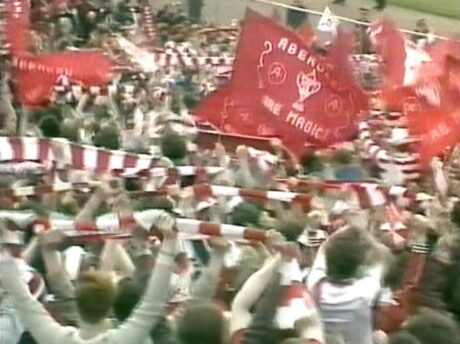
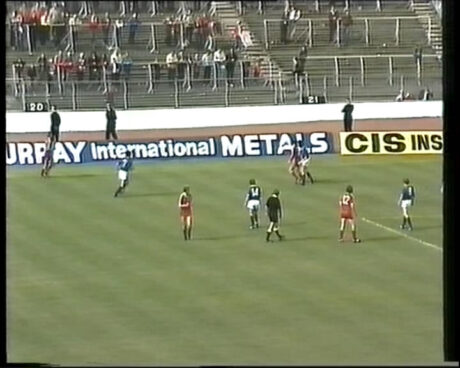
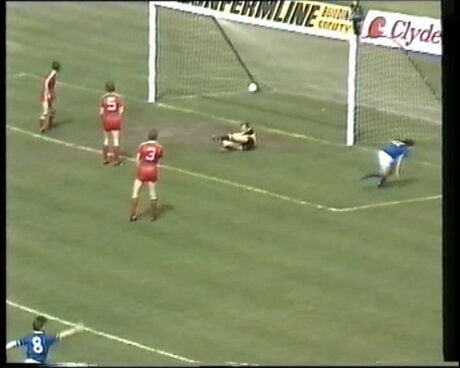
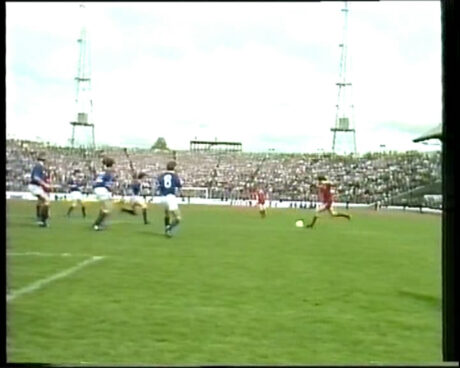
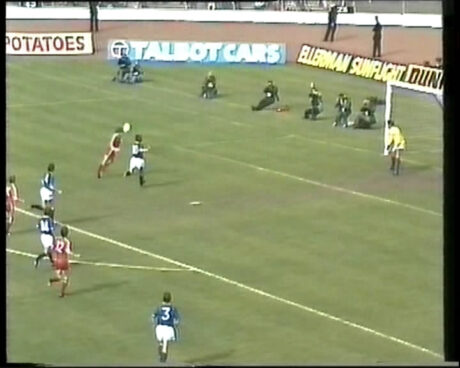
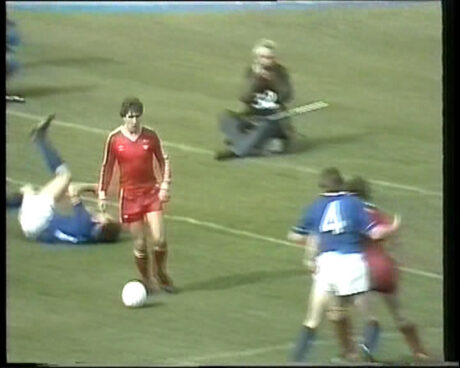
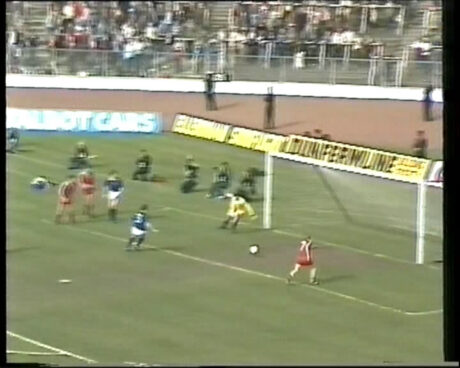
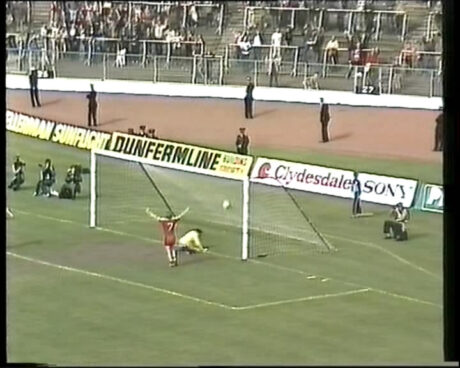
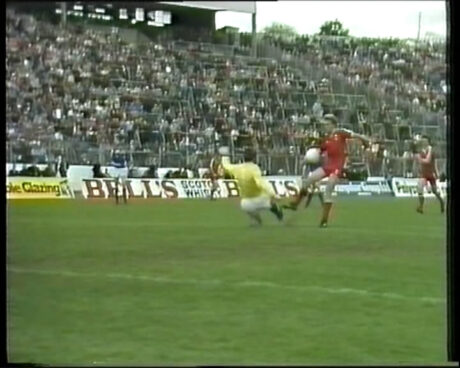
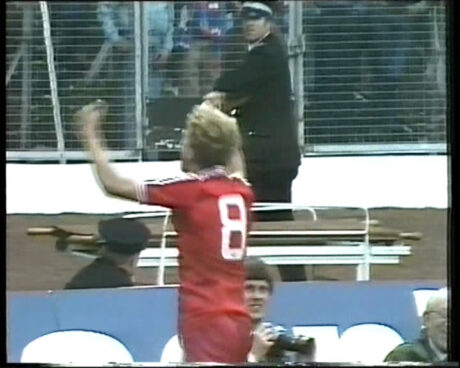
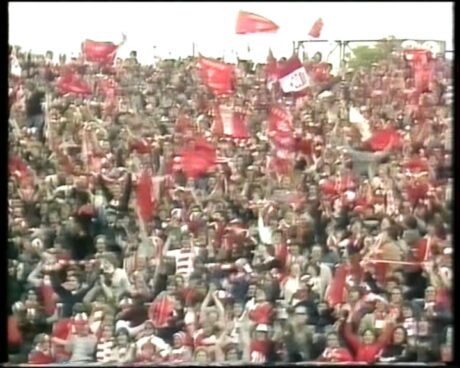


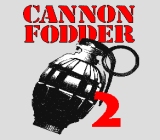

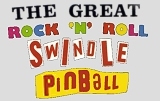

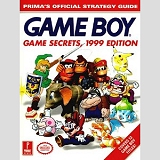

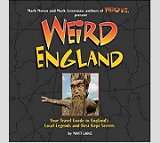
Great read. It is such a shame that Scots fitba remains so mired in the Old Firm rivalries and hatreds.
We got a bit of aberdeen love here, when Theo Snelders was coming over. Never forget the 90/91 climax, live on Dutch radio.
(which ended miserably, just like the 90/91 dutch season, with a psv championship on goal difference :( )
great read and brings the memories back
I was 12 and my 1st cup final and definately the best
I remember the Aberdeen crowd being way bigger than10k but accept that was the case given the official attendance. Its amazing this 80s team wasnt supported better by Aberdonians
I was at our last cup final vICT at celtic Park where we took 40k+ with a team of players the 80s side would have terroruised
go figure